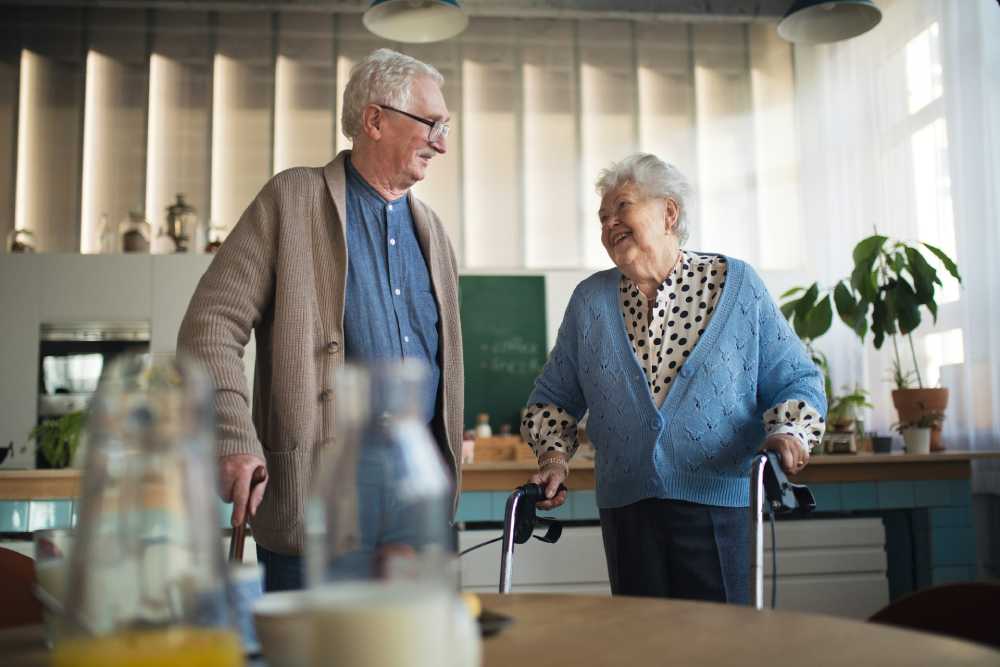
Transforming the Aging Experience: How Nursing Homes Empower Senior Living
Regarding aging, most older adults prefer to remain in their homes rather than move to a senior residential facility. Yet, some of these individuals still need assistance with daily tasks.
Nursing homes can encourage residents to pursue their interests while providing a safe and supportive environment. The key is a personalized approach to care that goes beyond medicine.
Investing in the Future of Care
The past year has been an inflection point for senior living as it has stepped up to embrace a necessary role. With 71 million Baby Boomers reaching retirement age, the need for housing options that foster independence and enable healthy aging will only increase.
A nursing home, St. Petersburg, FL offers a safe, warm, and engaging community where specialized staff is available to support a resident’s daily needs. They may be able to help with medications and medical procedures that family members cannot manage at home.
Family and friends must be their loved one’s advocate by checking in often and encouraging them to discuss any issues with nursing home staff. Regular family nights and meetings can also be an excellent way for families to stay connected and involved with their loved one’s care at the nursing home. In addition, it is essential to remember that most residents who reside in nursing homes do not want to move from their homes.
Embracing Technology
Assisted living communities have more flexibility to offer personalized engagement and support meaningful lives. Nursing homes, on the other hand, focus more on providing medical care to often severely ill or compromised individuals and provide three meals a day.
Incorporating tech solutions in a nursing home environment allows residents to connect with the outside world and participate in exciting events around the country and across the globe. Video chat apps and devices make it easier for seniors to stay connected.
It’s also essential to empower seniors with technology to improve their ability to manage their health. Many older adults take multiple medications per day, which can lead to medication confusion and non-adherence.
Creating a Culture of Empowerment
When a person moves into a long-term care community, they are often forced to relinquish control. They may be told when to wake up, bathe, and what meals they will eat. This can lead to a sense of powerlessness as they cannot make choices.
One of the ways nursing homes can empower their residents is by embracing a philosophy known as culture change. This philosophy transforms facilities from restrictive institutions to homes where residents and their caregivers thrive. This philosophy includes returning decision-making to the resident, providing meaningful activities, and creating a homelike environment.
Studies have shown that nursing homes implementing culture change have higher satisfaction in several key areas. This includes staff morale/loyalty and staff empowerment. The study also found that empowering staff is associated with improved psychosocial well-being, dignity, autonomy, and meaningful activities.
Inspiring Residents
Educating residents on self-care, such as preventing falls and keeping up with routine blood work that can catch illnesses or illnesses early, can also make a difference. By offering these classes, senior living providers can empower residents with the knowledge they need to prevent hospital trips and reduce long-term care costs.
The importance of having high-quality relationships with staff is also highlighted. Residents are often more engaged with relatives when they feel a connection. They are more inclined to visit if they are greeted with a smile or a cup of coffee, for example.
Inviting residents to participate in resident councils is another way of empowering residents. By giving residents a voice, they can pursue their passions and find purpose. They can be recognized as experts and contribute to decision-making in the community. This can also help to improve the quality of life and provide a sense of normalcy. Alternative settings have increased resident engagement and a sense of normalcy.
